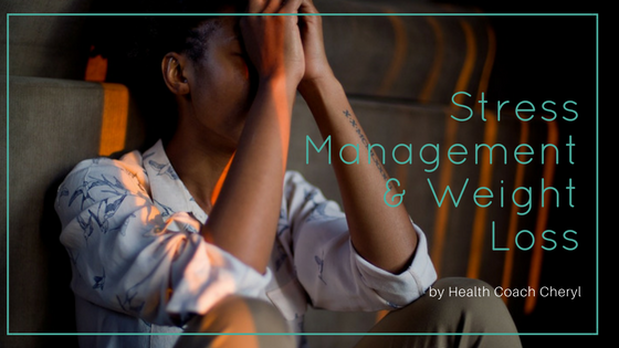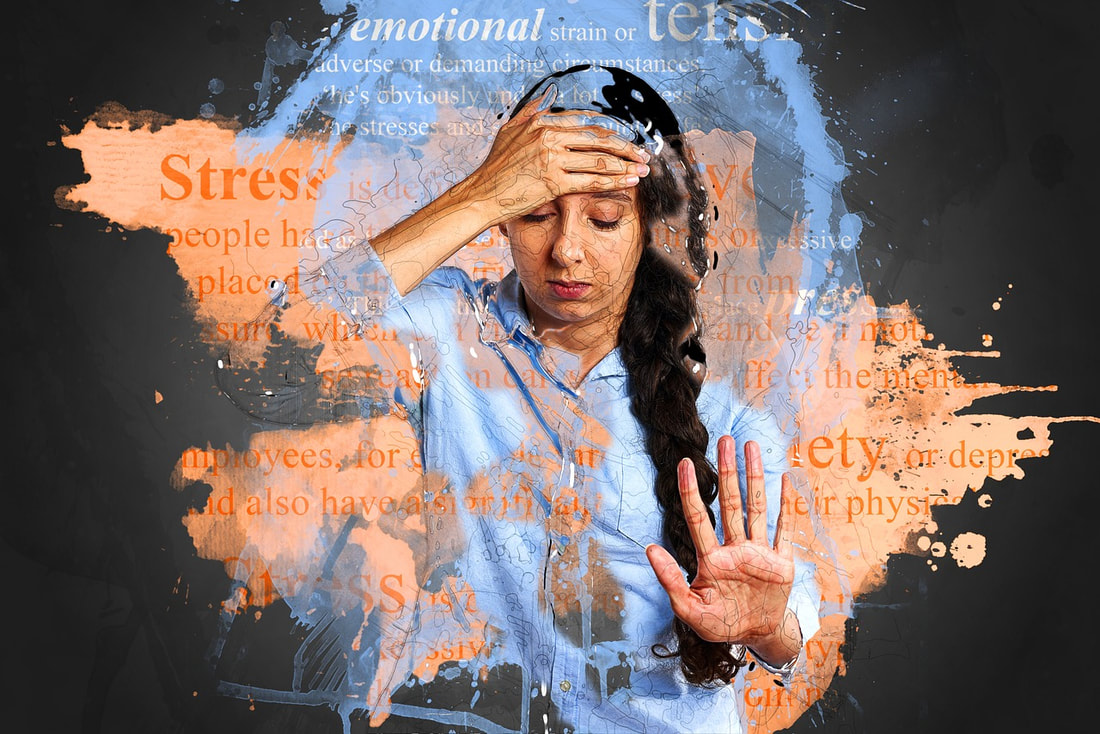What is Stress?
Stress - we deal with it on a regular basis and hear about it all the time. It’s in the news. We read about it in magazines and see it talked about online. Your doctor may even have talked with you about controlling your stress. But, is it really a such a big deal?
So what is stress anyway? The Miriam Webster dictionary defines stress as “a physical, chemical or emotional factor that causes bodily or mental tension and may be a factor in disease causation.”
I was actually pleasantly surprised to find that this definition included the less obvious result of stress, which can, in fact, be disease. Not that I’m happy about stress causing disease, but I think most people don’t realize the huge impact it can have on our health. The definition went on to show examples of using the word ‘stress’ in a sentence, which was also appropriate for this session. “Hormones are released into the body in response to emotional stress."
So, as you probably guessed, the answer to the question “Is stress a big deal?” is “Yes” - IF you care about your health.
So what is stress anyway? The Miriam Webster dictionary defines stress as “a physical, chemical or emotional factor that causes bodily or mental tension and may be a factor in disease causation.”
I was actually pleasantly surprised to find that this definition included the less obvious result of stress, which can, in fact, be disease. Not that I’m happy about stress causing disease, but I think most people don’t realize the huge impact it can have on our health. The definition went on to show examples of using the word ‘stress’ in a sentence, which was also appropriate for this session. “Hormones are released into the body in response to emotional stress."
So, as you probably guessed, the answer to the question “Is stress a big deal?” is “Yes” - IF you care about your health.
What's the Risk?
Here’s The Risk…
The long-term activation of the stress-response system - and the subsequent overexposure to cortisol and other stress hormones - can disrupt almost all your body's processes.
This puts you at increased risk of numerous health problems, including:
The long-term activation of the stress-response system - and the subsequent overexposure to cortisol and other stress hormones - can disrupt almost all your body's processes.
This puts you at increased risk of numerous health problems, including:
- Anxiety
- Depression
- Digestive problems
- Heart disease
- Sleep problems
- Weight gain
- Memory and concentration impairment
- Nutrient deficiencies as a result of decreased nutrient absorption
- Reduced gut flora (the ‘good’ bacteria)
- Increased levels of cortisol (which can inhibit weight loss)
- Lowering metabolism and increasing fat storage
- Increased oxidative stress (which causes premature aging)
How Can We Reduce Stress?
That's a lot of negative consequences to your health!
Now that you know how stress is related to all areas of your health and happiness levels, it's time to figure out ways to reduce stress.
Start by looking at the areas of your life that are causing you stress.
For example: Look at your calendar and see what you have going on each day in the coming month. If you (and your spouse and/or kids) are completely overbooked, is there a solution? Maybe this means taking a step down from certain obligations or activities. Perhaps working out a car pool would be helpful for some things.
Don’t let your schedule run YOU – decide how YOU can run your schedule. It may mean making some changes or adjustments, and possibly eliminating some commitments. You may even need to ask for help! In the long run, freeing up your schedule to decrease stress is worth it. You can have a family meeting to figure out solutions that may work for everyone. It doesn’t have to be all up to you to decide. It’s okay to delegate.
What do you really want for your life? Is your schedule a reflection of that?
If not, are there changes you can make?
Are you running your schedule or is your schedule running you?
Now that you know how stress is related to all areas of your health and happiness levels, it's time to figure out ways to reduce stress.
Start by looking at the areas of your life that are causing you stress.
For example: Look at your calendar and see what you have going on each day in the coming month. If you (and your spouse and/or kids) are completely overbooked, is there a solution? Maybe this means taking a step down from certain obligations or activities. Perhaps working out a car pool would be helpful for some things.
Don’t let your schedule run YOU – decide how YOU can run your schedule. It may mean making some changes or adjustments, and possibly eliminating some commitments. You may even need to ask for help! In the long run, freeing up your schedule to decrease stress is worth it. You can have a family meeting to figure out solutions that may work for everyone. It doesn’t have to be all up to you to decide. It’s okay to delegate.
What do you really want for your life? Is your schedule a reflection of that?
If not, are there changes you can make?
Are you running your schedule or is your schedule running you?
Evaluate Your Priorities
- List all your commitments and responsibilities. Figure out your biggest causes of stress and look at ways you can reduce it. Just start with one thing for now if needed.
- Evaluate your schedule and see where changes can be made to make things less hectic.
- Make sleep a priority and be sure to get the amount you need as often as you can. Notice how you feel when you’re more rested.
- Make meal planning & prepping a non-negotiable priority. When you've pre-prepared healthy options, you'll be less likely to eat unhealthy food that contributes to spikes and crashes in blood sugar which causes lethargy, and weight gain.
We’ve looked at common causes of stress and the negative impact on your health.
Many times, stress is caused when our priorities are not aligned with how we’re spending our time.
Here's where I can help!

I created a free eBook called "The Simple Swaps Guide to Meal Planning & Prepping."
Click here to sign-up for my healthy habits mailing list and get your free copy sent straight to your inbox.
This guide talks about the easiest way to start meal planning & prepping like a pro - without spending hours of your life slaving away in the kitchen, or breaking the bank!
Knowing that you can plan for healthy meals for you and your family every day of the week is such a load of your shoulders!
I know that when I don't have a meal plan or groceries bought for the week, I feel incredibly stressed!
With six busy children, who all need healthy meals to help them grow and thrive, I make meal planning & prepping a priority to keep everyone sane and energy levels high (especially me!).
I hope that you'll request this free guide to Meal Planning & Prepping so you can learn my favourite tips and tricks that will help make it a breeze!
Click here to sign-up for my healthy habits mailing list and get your free copy sent straight to your inbox.
This guide talks about the easiest way to start meal planning & prepping like a pro - without spending hours of your life slaving away in the kitchen, or breaking the bank!
Knowing that you can plan for healthy meals for you and your family every day of the week is such a load of your shoulders!
I know that when I don't have a meal plan or groceries bought for the week, I feel incredibly stressed!
With six busy children, who all need healthy meals to help them grow and thrive, I make meal planning & prepping a priority to keep everyone sane and energy levels high (especially me!).
I hope that you'll request this free guide to Meal Planning & Prepping so you can learn my favourite tips and tricks that will help make it a breeze!





